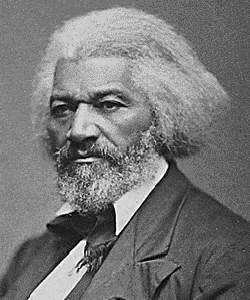Justice on the Basis of Sex
On the second day of a women’s rights convention in Seneca Falls, New York in 1848, nearly seventy women, including Lucretia Mott, and 32 men, including Frederick Douglass, signed a “Declaration of Sentiments.” The declaration demanded rights for women. The document was compelling because the Declaration of Independence was its template. That framework underlined the hypocrisy of the nation’s founding by exposing how natural rights principles were being denied to American women.
In the beginning of the statement, the authors altered the introduction of the 1776 Declaration to read: “we hold these truths to be self-evident; that all men and women are created equal.” Additionally, as the 1776 document cited the tyranny of Great Britain over the American colonies, the “Declaration of Sentiments” blasted the tyranny of men. The authors at Seneca Falls detailed the required subordination of wives to husbands in matters of morality and economics. For example, women could not hold positions of authority in most churches. Husbands controlled most married women’s earnings and land. These trespasses underscored the comparison of American male authority in the nineteenth century to the old rule of King George III.
The Seneca Falls authors also made note of inequalities hard wired into divorce laws. They expressed how laws of divorce held women practically captive and neglected their happiness. The authors note, however, that women in the presence of their husbands can commit “many crimes, with impunity.” Though this perhaps gave married women certain freedoms, the authors included this to reveal that it suppressed women morally.
I wonder why “Declaration of Sentiments” did not mention the injustices that Black women particularly suffered from. The authors could have possibly limited their sentiments to appear less extreme. Yet why could not figures like Mott and Douglass, both fierce abolitionists, have had the courage to imply that both causes went hand in hand?
By Nick Rickert, 2021
Excerpt from “Declaration of Sentiments,” read by Jordyn Ney and Nick Rickert
Music: “House Divided Opening” by Nick Rickert; “Voyeur” by Jingle Punks (Youtube Library)


